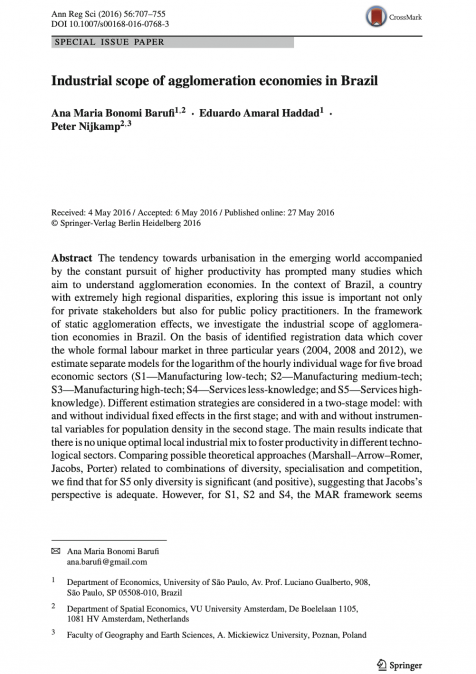Publications /
Paper in Academic Journals
This paper analyses the regional economic differences in the impact of lockdown measures to prevent the spread of COVID-19 ordered by Colombia’s national government. Using an input-output model, we estimate regional economic losses by extracting a group of formal and informal workers from different sectors of the economy. Results show regional differences in the impact of lockdown measures on their labour markets, local economies, and productive sectors. We also find that peripheral regions consolidate a higher number of informal workers in isolation than the interior regions. Regarding the economic impact, regional losses range between 5,4% of the GDP (Amazonia) and 6,3% (the Coffee Area and Antioquia).






